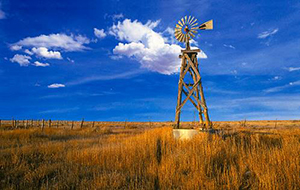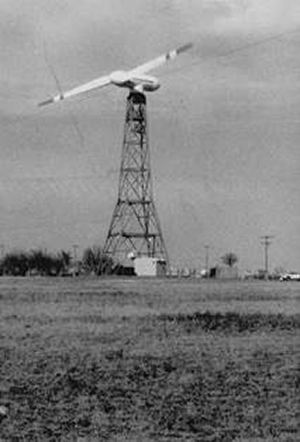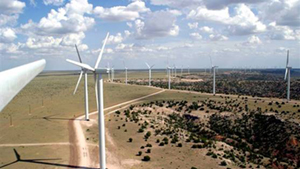Our Blog
Poco Windy #23: “New Mexico Wind and Career-Technical-Education (CTE)

Picture yourself 260 feet off the ground, strapped in with a safety harness, working in the out-of-doors, with a great view. You're earning lots of money in your base paycheck, plus overtime, often plus per diem. Your near or in central or eastern New Mexico and your working on 21st-century wind turbines.

Wind turbines, four blades and a tail have been hard at work in central New Mexico for a long time, from the 1850s to the 1870s, pumping water for livestock. Later, small wind-powered electrical generators between 5 kW and 25 kW were also in use to light up homesteads, ranch houses, and mines as late as the 1930s, when the Rural Electrification Administration (REA) created New Mexico rural electric Coops to bring electricity to more isolated rural communities and isolated residents. Just like electricity in the cities.

Larger commercial wind energy turbines trailed far behind. A brief turbine experiment in New England during WW II expired after the war. The initial, first-generation commercial wind turbine in New Mexico (only the second in the entire US), a 200 kW unit, was in place in 1977 by the DOE Federal Wind Energy Program at Clayton NM, connected to the Town of Clayton Light and Water Utility. The two-blade unit only operated when wind speeds were at or above 14 mph, providing modest amounts of electricity to the Town of Clayton.
We’ve come a long way since then, thanks to lots of science and engineering innovation. Early utility-scale commercial wind farms started in California in 1981. They energized the first utility-scale wind energy farm in New Mexico years later, in 2003, northwest of Fort Sumner, a 204 MW farm known as the New Mexico Wind Energy Center. The Center provides power for PNM through a high voltage transmission line running from the Blackwater Draw substation near Portales, westward to Albuquerque. Other wind farms gradually followed, with three-blade, tall tubular tower turbines now needing only eight mph average wind speed to generate massive amounts of electricity.

Today, New Mexico has 31 wind farms: 22 in operation, two under construction, and six in earlier stages of development. In 2018, with several thousand towers, New Mexico became known as the fastest-growing producer of wind energy in the United States, attempting to meet its 435 billion KWH annual wind estimated potential. More farms are in the way! New or old, wind turbines or the wind farms they now populate, have lots of moving parts and need regular monitoring and maintenance.
Enter career-technical education (CTE) and the New Mexico Center for Wind Energy Excellence at Mesalands Community College in Tucumcari. Needed is an Operations & Maintenance Technician (Tech) for every ten to fifteen turbines on a wind farm. Hundreds of technicians are now needed in New Mexico’s second-fastest-growing job. In deference to our agricultural history, the wind tech workforce is sometimes called, wind cowgirls or cowboys. Where will the 17 wind energy companies now operating in New Mexico find this highly trained workforce? Mesalands and Region 9 CTE has a training program for you or for someone you know. Now.
You can start wind tech training in high school as a dual credit junior or senior student. Or when you’ve finished high school or earned your GED. Or even later, when you want to start a second or third career. The wind industry needs everybody! Picture yourself on that tower high in the sky. Start now!
Call Andy Swapp Director of the Mesalands Wind Turbine Technician CTE Program at (435) 463-2288 or April Frost Wind CTE Program Coordinator at the Region 9 Education Cooperative in Ruidoso at (575) 257-2368 for more information and to obtain enrollment assistance.
Next Week: let’s put the Wind Tech training under the microscope. This is the home of Region 9 CTE. Thanks for stopping by.
